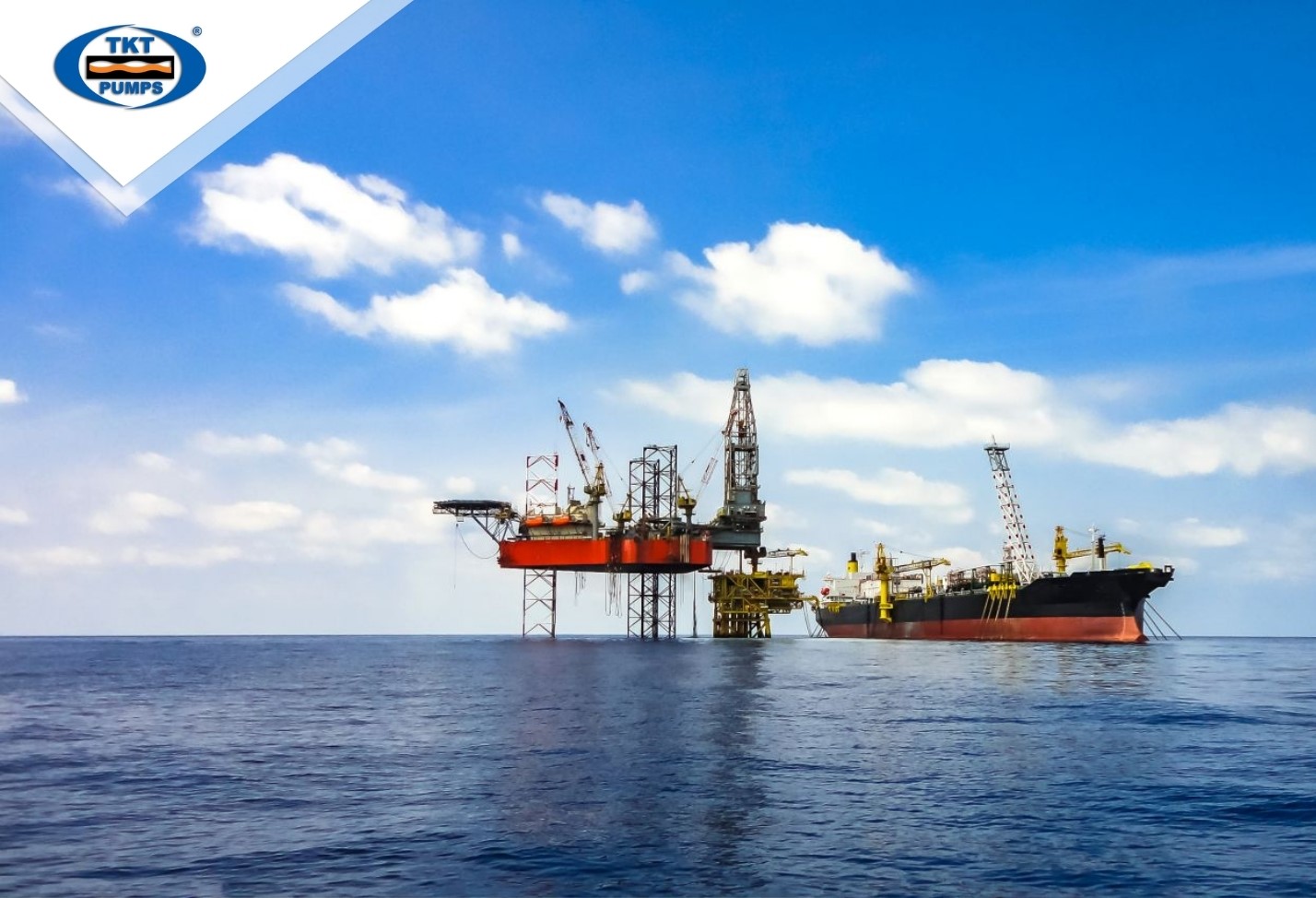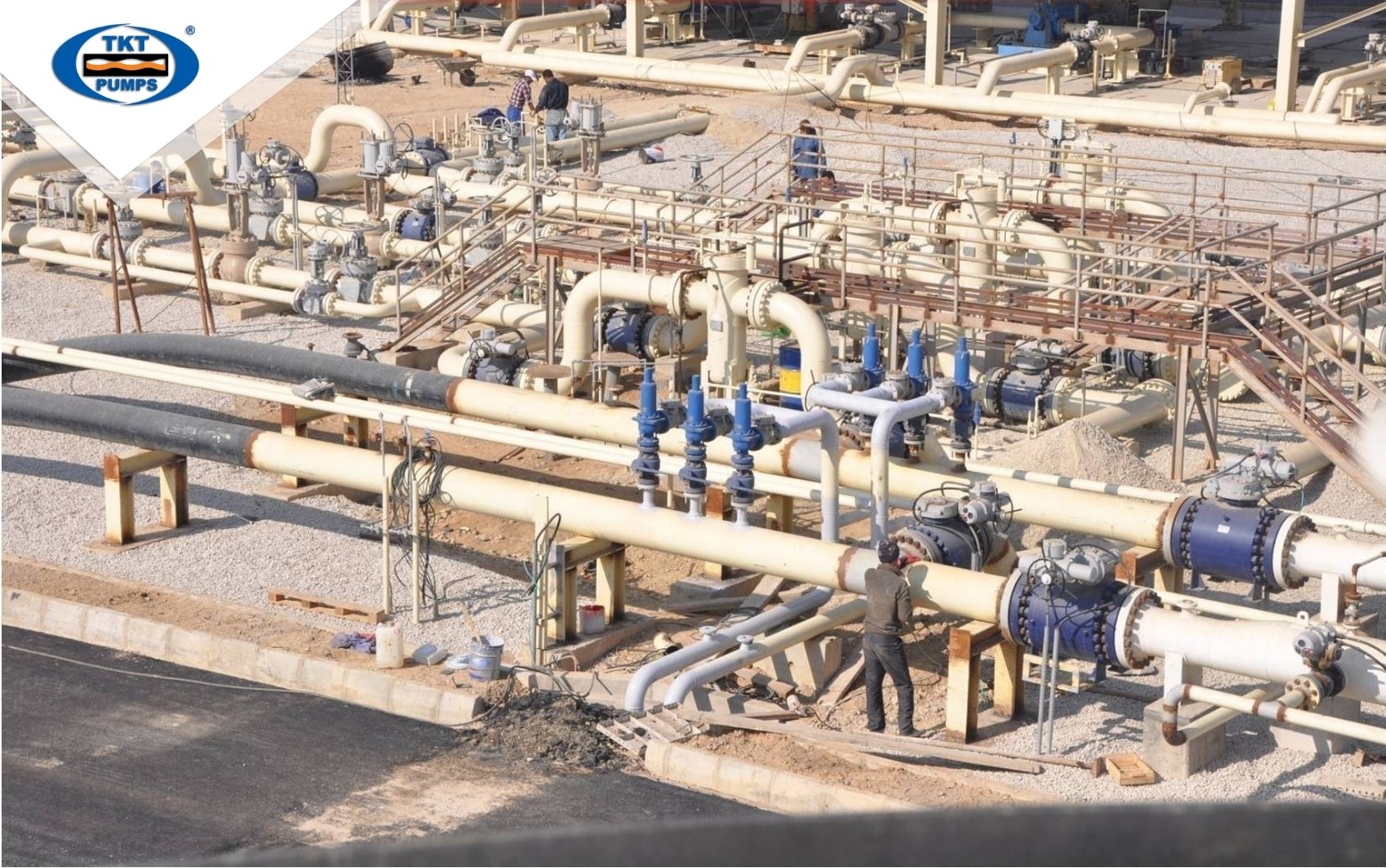Oil pumps have long appeared and become practical tools for oil and gas exploitation and transportation systems in general and oil refineries and oil production.
In this article, Thai Khuong shares with you information about the oil pump lines that have been and are used.
What is an oil pump?
Oil pumps are essential equipment in every stage of oil and gas operations. Basically, they help transfer the fluid in the process from one point to another.
For example, a pump can be used to transfer crude oil from a storage tank to a pipeline. And the mud pump is used to circulate the drilling mud back to the storage tank for re-filtration.

In oil and gas operations, process fluids come in many varieties, and each type can range from easy to difficult. Depending on the nature of the fluid you wish to transfer and the required flow rate, you will need a pump suitable for your needs.
6 types of oil pumps used in the oil and gas industry
Many different types of industrial pumps are used to transfer fluids in the oil and gas industry. Oil pumps used in O&G can be classified based on their design and construction and are generally divided into 6 main categories:
– Centrifugal pumps
– Piston pump
– Gear pumps
– Diaphragm pump
– Metering pump
We will briefly talk about the function of these pumps!
Centrifugal pump oil pump
Centrifugal pumps are the most common type of pump used in the oil and gas industry. Centrifugal pumps use centrifugal force through the rotation of the impeller to draw fluid into the pump inlet and push the liquid through the discharge section by centrifugal force. Flow-through the pump is controlled by discharge flow control valves.

Single-stage centrifugal pumps are mainly used to transfer low-viscosity liquids that require high flow rates. They are often used as part of a larger pump network that includes other centrifugal pumps such as horizontal multistage pumps for transporting crude oil or water jet pumps used in secondary oil and gas recovery. level.
Piston pump in oil and gas pump
The reciprocating pump is one of the most popular industrial pumps in the oil and gas industry. Reciprocating pumps use the reciprocating motion of the piston to pressurize the liquid in the enclosed cylinder to the piping system.
Reciprocating pumps are considered constant flow pumps because the flow rate remains constant at a given speed even though the system pressure varies. The relief valve is an essential part of any plunger pump discharge piping system to prevent overpressure of the pump and piping system.
Reciprocating pumps require more frequent maintenance than centrifugal pumps due to the design of the moving parts. They also have a noisier operation than centrifugal pumps.

Oil pump screw pump
A screw pump is a type of volumetric pump known as an eccentric screw pump or cavity pump. Screw pumps are used in applications where high viscosity is desired or where mixing the pumped liquid does not desire.
Screw pumps are also considered constant flow pumps because the flow rate is relatively constant at a given speed despite the variable system pressure. As a result, flow slip is normal at higher pressures. Pressure relief valves are an essential part of any screw pump discharge piping system to prevent overpressure of pumps and piping systems.
Diaphragm pump oil and gas pump
Diaphragm pumps are among the most versatile oil and gas pumps in the industry and move oil through the pump chamber using valves and diaphragms.
The principle of this type of pump operation is that a decrease in volume will increase the pressure in the vacuum and vice versa.
Diaphragm pumps are suitable for high-volume fluid transfer operations in refineries. They also require much less maintenance than other volumetric pumps due to fewer moving parts and less friction during operation and compact design.
But these diaphragm pumps are not suitable for continuous oil pumping or long-distance oil pumping operations, as they often do not meet the required high-pressure conditions.
Gear pump in oil and gas pump
A gear pump uses a mesh of gears to pump fluids by displacement.

Gear pumps are also widely used for chemical transfer applications for high viscosity fluids.
There are two main variations:
– External gear pumps use two external gears or timing gears driving the internal gear set. The inner gears do not touch each other, so the non-lubricating fluid can be pumped with the external gear pump.
The internal gear pump uses an axial drive gear to drive the internal mating gear. Gear pumps are positive displacement (or fixed displacement) type, which means they pump a constant amount of liquid for each revolution.
Since the fluid to be pumped passes between close gear tolerances, gear pumps are often used for clean fluids, especially in the stages of pumping oil that has been treated and filtered. The relief valve is an essential component in the discharge piping system to protect the pump and piping from overpressure.
Oil metering pump
Dosing pumps move a precise volume of liquid in a specified amount of time to provide the correct flow rate. The delivery of fluid at a precisely adjustable flow rate is called dosing. The term “dosing pump” is based on application or usage rather than the exact type of pump used.
Metering pumps are more commonly used in the processing and filtration stages. They are used to precisely inject additives into the crude oil feedstock during processing.

Where can I buy an oil pump?
Oil and gas is an area that our country is currently investing in and developing. The proof is that in the Central region we already have large capacity oil refineries in operation.
We were grasping the demand for using the most modern pumping equipment in the world. Thai Khuong has invested a lot of research and interacted with many companies from the EU to provide suitable solutions and equipment for production lines in Vietnam.
With more than 14 years of experience, Thai Khuong is ready to meet your most stringent requirements to be able to produce high-quality oil cans to supply to the worldwide market.
Are you looking for a solution or need advice on choosing the right pump equipment to pump oil? Please contact Thai Khuong immediately for dedicated support quickly!
